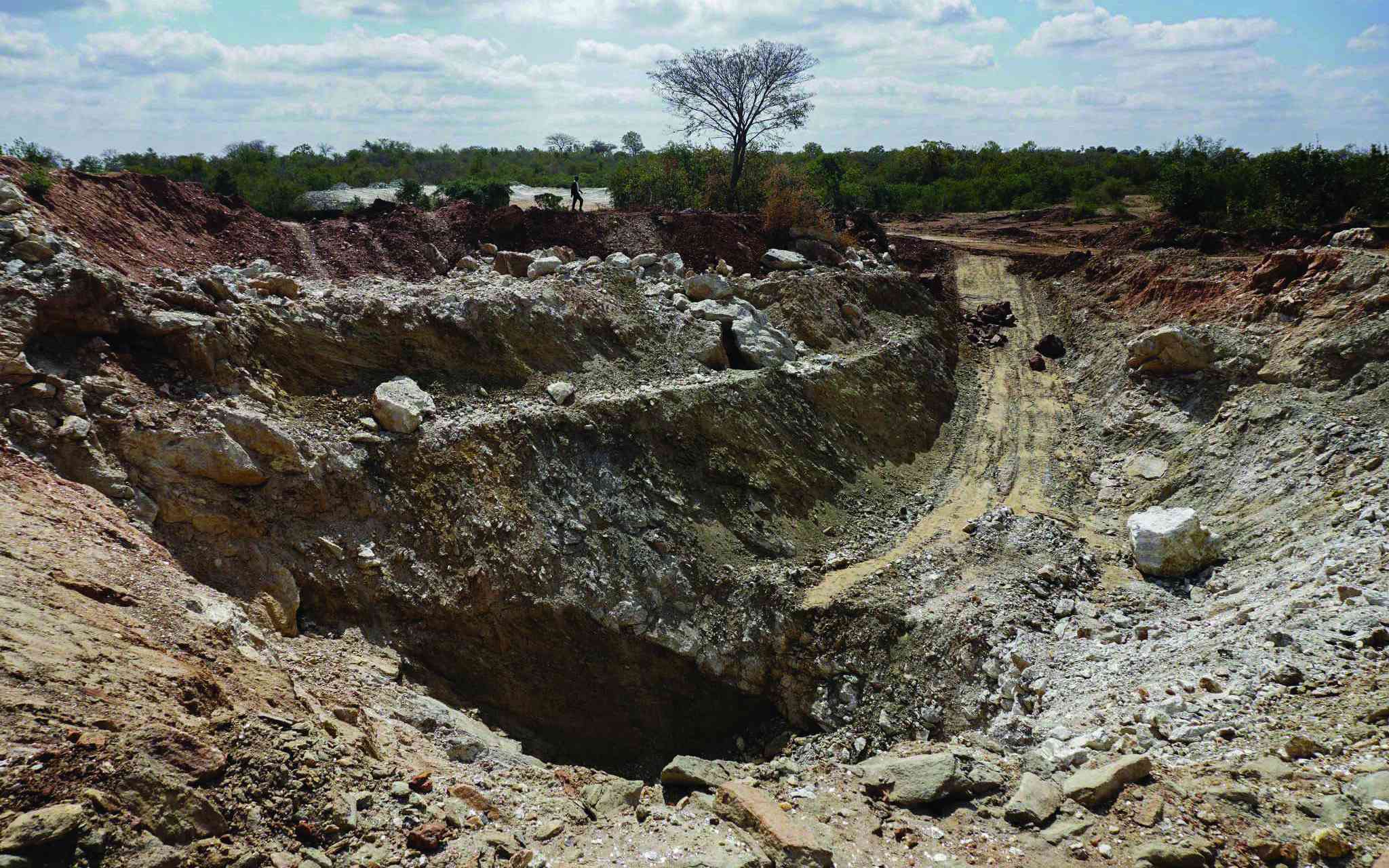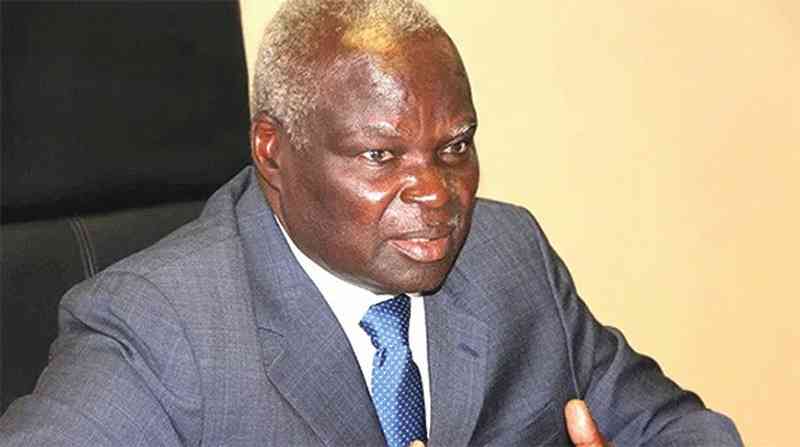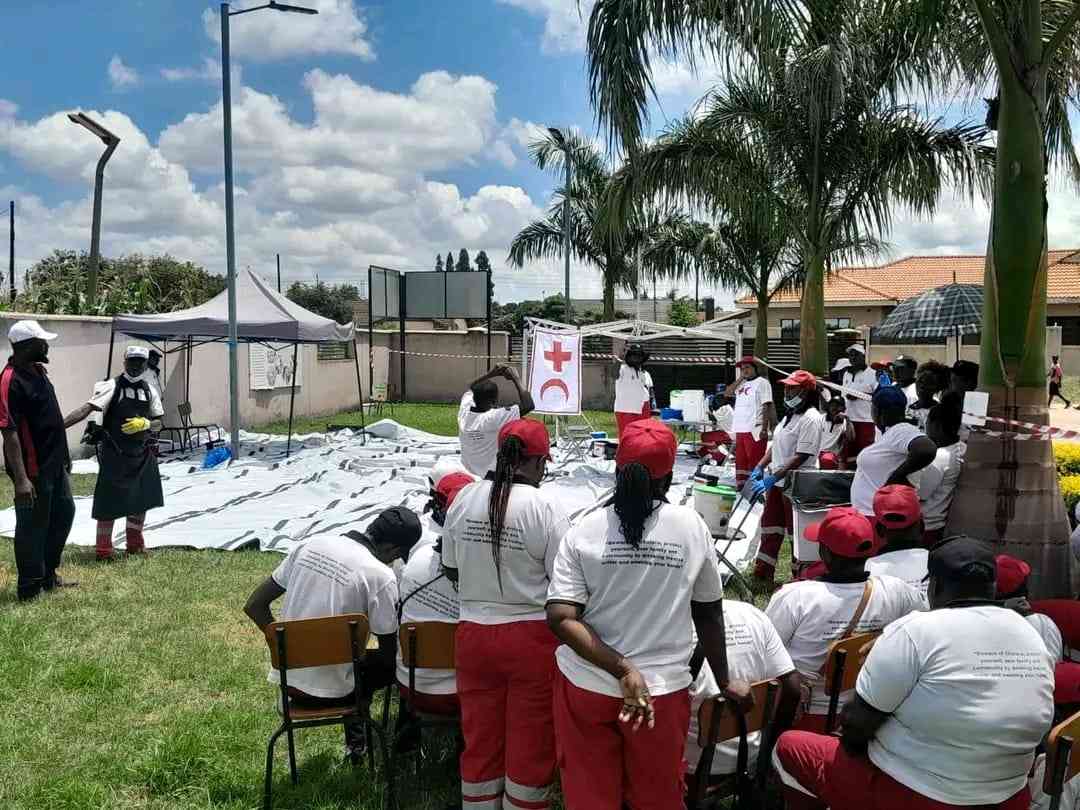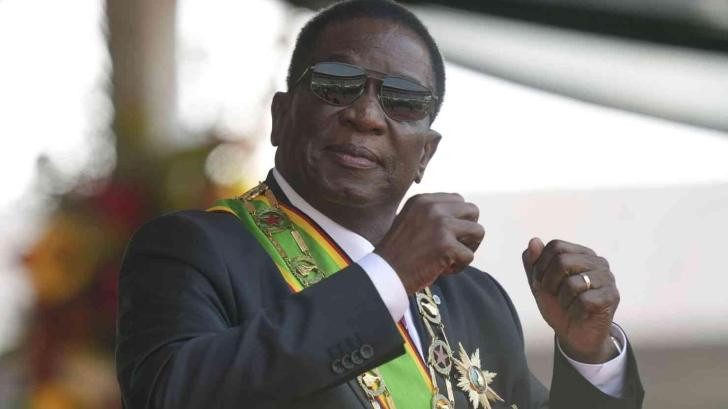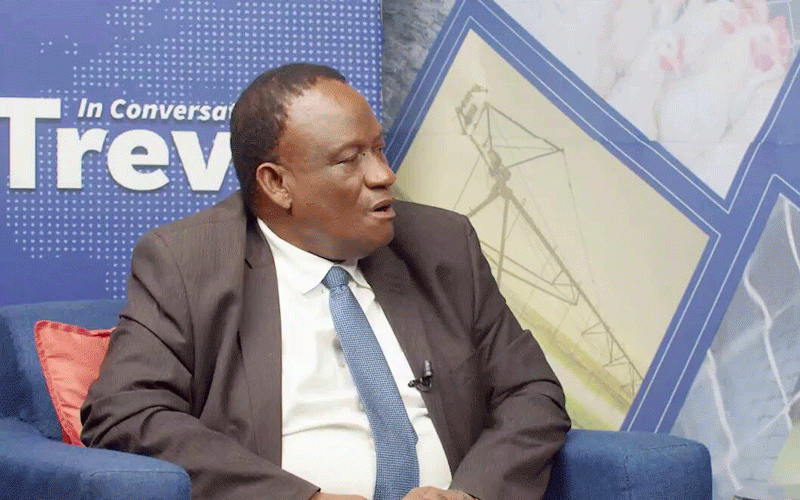
Veteran broadcaster John Masuku says he never regretted being fired by ZBC at the pinnacle of his career because he saw it coming.
Masuku (JM), who is also a media consultant and radio trainer, was one of the several top radio and television personalities that were sacked by the state broadcaster in the year 2000.
He told Alpha Media Holdings chairman Trevor Ncube (TN) on the platform In Conversation with Trevor that the retrenchment opened better opportunities for him.
Below are excerpts from the interview.
TN: John Masuku, welcome to In Conversation With Trevor.
JM: Thank you very much Trevor. It is so nice to be with you in conversation.
- In Conversation with Trevor: Chisamba: Let’s be proud of ourselves
- In Conversation with Trevor: ‘I tried to change Zanu PF from within’ – Margaret Dongo
- In Conversation with Trevor : How car crash changed my life
- In Conversation With Trevor: ‘We lost our humanity’
Keep Reading
TN: Hahaha. You know Bra John, when I was reading your profile you took me back to what our generation calls the good old days.
The days of Maguire Godzongere, Webster Shamu, Wellington Mbofana, Ephraim Jemba and Musi Khumalo. What a group of talented people, which is where you come from.
JM: Yes, a lot of talent there. I joined in 1974 as youngster straight from a secondary school.
I would not say high school because the rest of my education I had to continue while I was on the job.
So, it was quite exciting, and I think I joined almost at the same time with James Makamba who was on the commercial side.
In those days we had a number of private commercial houses where the Ephraim Chambas you are mentioning, the Wellington Mbofanas, the Steve Kavaise’s, the Sam Matambos had moved to...
TN: John Matinde?
JM: Yes. They started off at the RBC African Service, and then moved to those commercial houses.
Their programmes were all broadcast on the same service.
So yes, those are people who we worked with, and some of us remained on the service, reading news and doing soccer commentaries and early morning shows.
I was a DJ for some time you remember, I was called Legal Johnny Be Good, and so forth very exciting times indeed.
TN: Very exciting times. You know when you look at where we are right now, in terms of our profession what goes through your mind John?
JM: Well, I see a lot of changes.
Progressive changes, and some having been a build-up on what we did in the old days.
I always believe that times change, and when you look at them you know they will not always be the same.
I tell people that I worked under, I think should be four governments.
When I joined it was the Rhodesia Broadcasting Corporation, under Ian Smith, and then later on there was the short-lived Zimbabwe-Rhodesia, which was (Ian) Smith, (Chief) Chirau, (Abel) Muzorewa and so forth.
Then at independence we had the government of prime minister Robert Mugabe, and now we have the second republic.
So, all those have different characteristics that you cannot ignore, and different promises that they have given to the media and structures that they have come up with.
TN: As you are talking right now, I closed my eyes almost, I can hear you on Radio 2. All those beautiful programmes that you used to present to us, absolutely amazing. I mean I did...
JM: Let me put it this way Trevor; you imagine me on the RBC African Service first time, I do not know how old you were, and then I moved over to the news department to do Radio Newsreel, The World This Week, as well as read news on television.
On Radio 2 I would come back mainly for the special events, like the Prime Minister’s Question Time, you know the special events of the coming back of the heroes of the national struggle to be reburied in Zimbabwe and so forth.
I am so proud that I was given that opportunity of covering most of the important events.
TN: Wow. You are part of our history, aren't you?
JM: Thank you very much.
TN: I mean you have lived through all of it. You have had a front row seat of witnessing our history.
JM: Yes, it's exciting because although I was working inside the country, I also followed the radio because I always try to bring radio in its holistic sense.
Talk about radio, the radio that we were doing here inside the country, in Rhodesia, but there was also radio outside Zimbabwe by our brothers and sisters who had crossed borders, who were running stations in Ethiopia, in Russia, in Angola, in Mozambique, and so forth.
So, lest we forget, that is also part of our history because those same people are the ones who then came to lead radio at independence.
TN: I talk about you as being part of our history; and I will take you to an uncomfortable space now, which is also part of our history because it defines in many respects what has happened to this country.
The year is 2000, you clash with the minister of Information and Publicity in the President’s Office, Jonathan Moyo. Walk us through, set the scene for us.
What had you done? What had he done?
JM: Well I will contextualise. I know my colleague Tapfuma Machakaire, whenever he writes, he likes including that story because I was with him.
First of all, I had forgotten about it until I read it in his book Nose For News.
And then quite recently he was writing about me as the international campaign coordinator for World Radio Day for Unesco.
What had happened was that we were meeting, and those were the days the government was preparing to open the airwaves and the minister had come to Bulawayo because at that time I was the controller of Montrose Studios in Bulawayo.
So, we had a discussion, my former lecturer, Professor Jonathan Moyo, one of my best lecturers in political science you know.
We met, and when we were discussing opening up of the airwaves and they were saying yes let them be open and we have many players and so forth, he did not immediately agree with me and that is what, my friend Tapfuma then went on to write about.
So that is the context of that, but the background is that yes, I had known the professor for quite some time as my lecturer at the University of Zimbabwe where I went to as an adult student.
I was already a station manager for radio.
TN: But you disagreed in the sense...?
JM: Yes. Well I would say he disagreed with me.
TN: Right.
JM: There was no further argument. I got the point from my place yes.
TN: But there were consequences. There were big changes that happened at ZBC. Walk us through what then happened afterwards?
JM: Well yes there were changes.
That is the time when most of us who had been there were actually retrenched, starting with us who were controllers, which meant we were like assistant directors.
In fact, they started off with the directors who were there, and then they came to us as controllers, and then there were a whole lot of people who were then retrenched after us and so forth.
One would sense that most of the instructions, or most of the activities were now coming, I cannot remember whether it was from Liquenda House (the Information ministry headquarters) or Monomotapa (President’s Office), but we were no longer there. That is why...
TN: You know why I am laughing Bra John because you are such a diplomat. I did not realise you are such a diplomat, but anyway continue.
JM: Yes.
TN: So now you have got the sense that the instructions are coming from Liquennda House?
JM: Was It Liquenda?
TN: I can’t remember.
JM: So that is the time when we left, and this is the time when I joined Radio Voice of the People, which was described as a pirate radio station.
It was a private station run...
TN: [called a pirate radio station] by your former lecturer?
JM: Yeah, as the minister. Then the board came in, it was led by the former governor of The Reserve Bank of Zimbabwe Dr Gideon Gono.
So, we left when he was the chairperson of the board. Allan Mpofu, he was the CEO, a colleague of ours who ended up being a CEO.
That is the time when quite a number of us left. Others remained in broadcasting...
TN: What would you say Bra John if I say that was a regrettable part of your career? The way it ended?
The carnage at ZBC. Allan Mpofu, may his soul rest in peace.
JM: Yes. Well regrettable and not regrettable, because you know what happens in life; I know you have an example as well Trevor because once upon a time you were fired from somewhere, but look at where you are today because new things came on board.
So regrettable in the sense that one is not ready to leave a place, but you know opportunities galore, because you then find yourself in different situations which you can then explore and still remain in broadcasting.
It was not easy to remain especially at VOP, considering how the government of the day starting from my former lecturer like up to now...
TN: I love this.
JM: We were considered as pirate stations, but it preserved my broadcasting career, that is why you still call me a broadcaster.
TN: I love us Bra John getting lessons from what we go through.
What did that particular event teach you?
What was it like going through that? Because it is something else.
I mean you talk about me being fired. I was fired from The Financial Gazette, it was painful.
It was one of the most painful times of my life.
JM: Yes.
TN: But now that I am here, when I look back what a blessing it was.
But it taught me a number of things, like we said when we started, it taught me that the people that you think are friends when times are good are not always there when times are tough.
What did this experience teach you?
JM: Well it taught me that I should always be prepared for tomorrow, and if you do not fit in a particular change and you are gotten rid of you should not regret.
Either you join or you are kicked out. So, in this case we were kicked out, but that was not the end of the story like I said.
TN: Was it painful being kicked out? Talk to me about that?
JM: Well I saw it coming. So, by the time it happened it was not that painful.
Bit by bit I saw it coming.
Let me tell you, it started off with the advertisements for senior positions at ZBC, which we applied for, most of us.
I applied I think for two, one was being general manager of radio and the other was to do with production. I never got responses to any of them, and I never got any acknowledgment.
So, when I saw that happening I just knew that it was coming.
Then announcements were made about who had succeeded in those interviews, and I remember some of the people were employed in those positions were about number six or number seven from my position.
Just before we were told the truth, already I knew that it was coming.
When you know something is coming you really prepare yourself for departure or for plan B.
You remind me of a friend of mine who is my current executive producer for Economic Forum, Justice Dhliwayo, he came to Montrose, he was doing a documentary on (the late) Mama Mafuyane (late vice-president Joshua Nkomo), with Abigail Mvududu.
He said you are leaving today, this is your last day after 27 or 28 years with the ZBC, but you do not seem to be bitter. So, I said why should I be bitter with this string of events that have been happening.
I then remember walking to my car on that last day at Montrose Studios, seeing members of staff who I had administered in a bus and I drove away with my few belongings and I went home and that was it. But I never looked back because here I am right now and I have even gone to greater heights, up to consulting for the United Nations.

